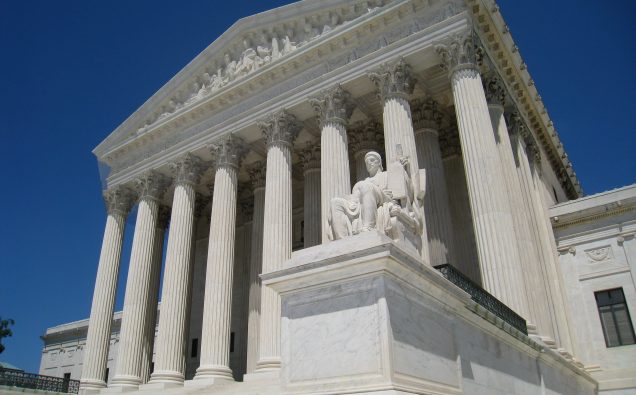
Supreme Court of the United States Photo by Daderot/Wikimedia Commons
The Trump administration has turned to the Supreme Court for re-institution of its ban on travelers from six mostly Muslim countries.
The Justice Department filing to the high court late Thursday argues that the federal appeals court in Richmond, Virginia, made several mistakes in ruling against the Trump travel policy. The government says the nation will be safer if the policy is put in place.
According to Justice Department spokesperson Sarah Isgur Flores the Administration has “asked the Supreme Court to hear this important case and are confident that President Trump’s executive order is well within his lawful authority to keep the nation safe and protect our communities from terrorism.”
“The president is not required to admit people from countries that sponsor or shelter terrorism, until he determines that they can be properly vetted and do not pose a security risk to the United States,” the statement said, according a report in The Hill publication.
The news was broken by Reuters news organization, which said the administration has filed two emergency applications with the Supreme Court.
Under an executive order, which has been blocked by the courts, citizens of Iran, Libya, Somalia, Sudan, Syria and Yemen would not have been allowed into the United States for 90 days.
The decision comes after a Richmond, Va.-based federal appeals court refused to reinstate the ban.
In its 10-3 ruling, the 4th Circuit Court of Appeals that Trump’s executive order “speaks with vague words of national security, but in context drips with religious intolerance, animus and discrimination.”
The 9th Circuit ruled against Trump’s first travel order after it was blocked by Washington District Court judge. Trump said he revised the order — removing Iraq from the list of banned counties, as well as the indefinite ban on Syrian refugees and language giving preference to religious minorities when the refugee program resumed — to address the court’s concerns.
The 4th U.S. Circuit Court of Appeals called the national security concerns an after-the-fact justification for a policy that was “intended to bar Muslims from this country.”

















